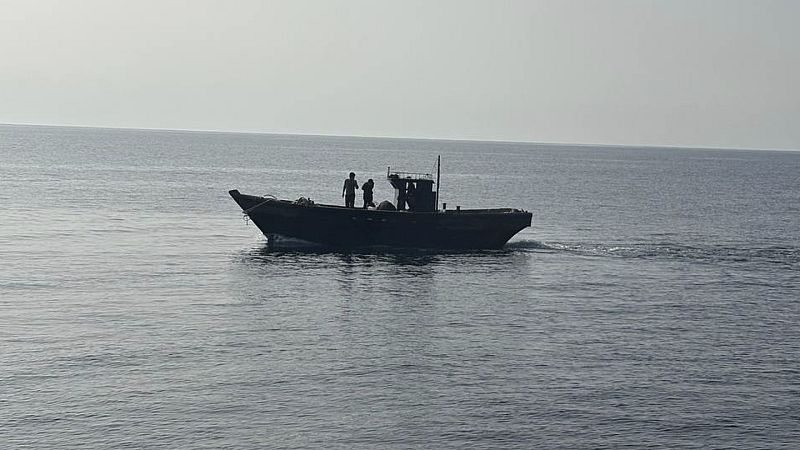
South Korea has repatriated six North Koreans who drifted into its waters by mistake earlier this year.
The six individuals were all handed back across the rivals' sea border on Wednesday morning, according to the South Korean Ministry of Unification.
Two of them were rescued in the West Sea in March, while four were found in the East Sea in late May.
The pair who were discovered first spent around four months in South Korea, the longest known time for any non-defectors.
All six North Koreans had "strongly expressed their desire" to go home, Seoul said.
The repatriation efforts were complicated by North Korean leader Kim Jong-un’s decision to cut inter-Korean communication lines in April 2023, following a deterioration in the relations between the two countries.
Seoul said it had informed Pyongyang through the US-led United Nations Command about its intention to repatriate the six individuals, but that it had not received a response.
However, a North Korean patrol boat was at the handover point on Wednesday when the six arrived in a repaired wooden boat, the South Korean Ministry of Unification said.
Analysts noted that the repatriation process may also have taken longer than usual as a result of the recent political turmoil in South Korea.
The six individuals all arrived in the country after the impeachment of former President Yoon Suk-yeol, who was officially removed from power in early April over his failed attempt to impose martial law in December.
The North Koreans’ handover was the first to take place since Lee Jae-myung took office as the South Korean president last month.
Taking a different approach to the previous South Korean government, the liberal politician has stressed his desire to restart dialogue with Pyongyang.
As part of these diplomatic efforts, South Korea has banned military loudspeaker broadcasts across the border and has moved to stop activities from floating balloons filled with propaganda leaflets into North Korea.
It is not clear whether these attempts will work with Kim, who declared in January 2024 that South Korea was his country’s "principal enemy".







